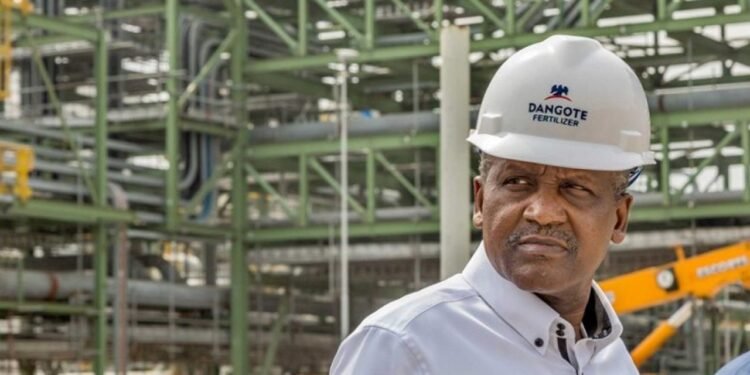In the wake of the recent declaration by the Nigerian National Petroleum Company Limited, NNPCL, Industry observers have stated that the Federal Government seems not ready to stop fuel importation following the refusal to be the off-taker of Dangote’s petrol.
As a result of this, Oil marketers may begin the importation of Premium Motor Spirit, popularly called petrol.
NNPC, while stating that it had no desire or intention to become the distributor for any entity in a free market environment, also added that Dangote and other domestic refineries were free to sell directly to any marketer on a willing buyer, willing seller basis.
This is, however, contrary to what the President of Dangote Group, Alhaji Aliko Dangote, stated last week.
The owner of the $20bn refinery had stated that the refinery was waiting for NNPC, adding that the national oil company would be the only off-taker of its petrol domestically.
Reacting to the slowdown in discussions between Dangote and NNPC, oil marketers stated that they would only source the product from wherever they found it cheaper, as this could be through importation.
Commenting on the price of Dangote petrol, the National Operations Controller, Independent Petroleum Marketers Association of Nigeria, Mustapha Zarma, said, “We have not contacted Dangote for now, but we may contact the refinery’s sales department this week to find out the price.
“If the price is competitive enough for one to buy and get his return on investment and the required margin, then we wouldn’t mind purchasing directly from him to complement what NNPC is bringing in or what NNPC would buy from Dangote.”
Zarma confirmed that since the Federal Government and NNPC had said the Dangote refinery would sell its product at the market price, this implied that the government would not intervene in the pricing of the commodity from the plant through subsidy.
Based on this, he noted that other dealers now had the opportunity to source the product from any producer at a cheaper price, whether locally or internationally.
He noted that some oil marketers currently imported diesel, while others bought the product from Dangote, adding that a similar situation would play out in the purchase of petrol, going by NNPC’s recent position on Dangote petrol.
“I believe that we are going to analyse the price of Dangote petrol and see the advantages of buying from Dangote viz-a-viz importation. Whichever we feel is cheaper will automatically attract everybody, especially if importation is cheaper.
“That will bring about competition and I don’t think the government will allow price monopoly. They would want a competitive market where the laws of demand and supply would determine the local price of refined petroleum products, just like diesel is right now.
“And with that, there is going to be some kind of equilibrium in the pricing and there is going to be guaranteed sustainability of supply,” the IPMAN official stated.
They, however, noted that with the recent hike in the pump prices of petrol, the government was systematically stopping subsidies on the commodity, following the recent revelation by NNPC that it spent over N7.8tn subsidising petrol.
At the presentation of the audited report and accounts of NNPC for the 2023 business year in Abuja last month, NNPC’s Chief Financial Officer, Umar Ajiya, admitted that the oil firm was shouldering a heavy subsidy burden on petrol imports.
He said the government directed NNPC to sell the petrol it imported at a price that is half the landing price. According to him, at times the Federal Government paid the money and it could as well net off for it.
While the official pump price of petrol is about N600/litre, the average landing cost is about N1,200/litre. Ajiya said the company covered about N7.8tn in “shortfall” in the first seven months of this year.
“What has been happening is that we have been importing PMS, landing at a certain price, and the government is telling us to sell it at half price. So, that gap between that landed price and the half price is what we call shortfall or we call it a subsidy,” the CFO had stated.





